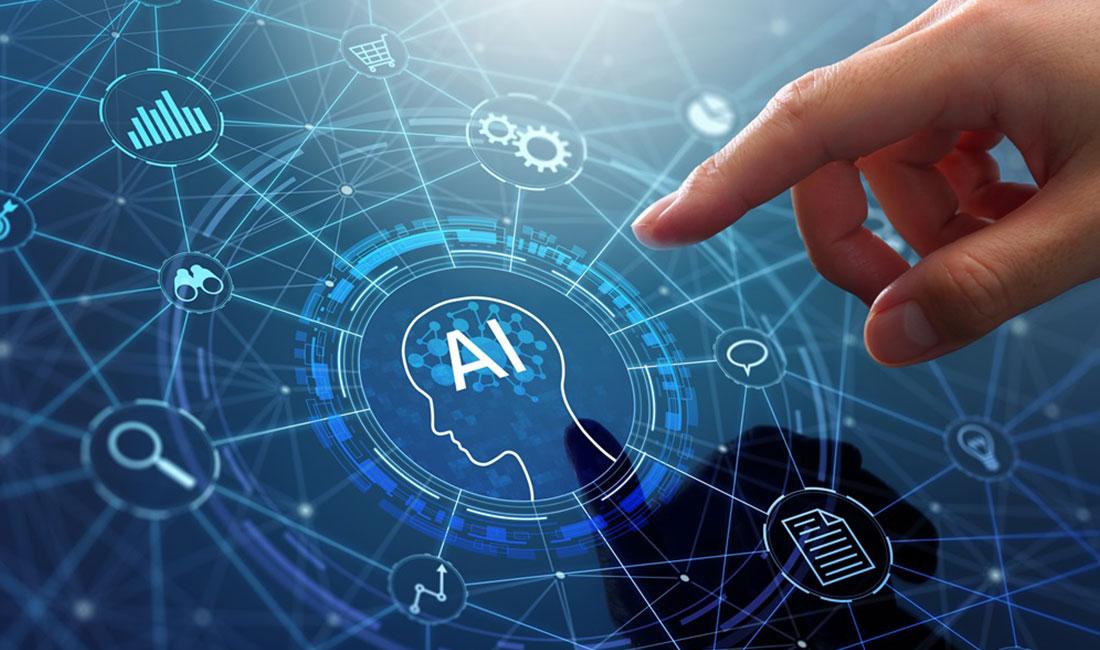Attention
This website is best viewed in portrait mode.
Publication Name: ET Edge-insights.com
Date: April 09, 2025
Agentic AI in industrial operations: A game-changer with challenges

Agentic AI is driving the manufacturing industry by improving efficiency, reducing costs, and enhancing decision-making. This emerging facet of AI moves beyond rigid, pre-programmed rules, instead relying on data-driven learning to make context-aware decisions. By adapting to real-time conditions, Agentic AI offers greater flexibility and smarter automation through its capability to use tools and leverage various runtimes. However, integrating these AI-driven systems into legacy manufacturing setups presents challenges, including data privacy concerns, scalability issues, and system compatibility. Addressing these hurdles is key to unlocking the full potential of Agentic AI in modern manufacturing.
Agentic AI’s operational efficiency in manufacturing
Agentic AI systems can significantly enhance operational efficiency through their autonomous decision-making processes. AI-driven agents can analyse vast datasets in real-time, making autonomous decisions that optimise production schedules, manage supply chains, and reduce machine downtime.
By continuously monitoring equipment conditions, AI agents predict potential failures, allowing proactive maintenance and minimising unplanned downtime. Additionally, Agentic AI helps in quality control, where AI-driven visual inspection systems can identify defects at high speeds and precision, ensuring consistent product quality and reducing waste. Energy efficiency is also achieved by optimising power consumption across machines by adopting smart scheduling and resource management, leading to significant cost savings. The power of agentic AI lies in its focus on automating repetitive tasks, where human workers now have more time to focus on high-value activities such as innovation, troubleshooting, and strategic decision-making.
Challenges of integrating agentic AI into legacy systems
Traditional factories operate on infrastructure that may not have the connectivity and processing power required for AI integration, it becomes difficult to integrate smarter systems like Agentic AI into legacy systems. The instance of data fragmentation is prevalent in the manufacturing industry, where data is often scattered across multiple systems, making it difficult to aggregate and analyse effectively. Implementing AI solutions demands substantial capital for hardware, software, and workforce upskilling, where such high investment will prove to be disadvantageous to companies. Additionally, employees may resist AI adoption due to fears of job displacement, requiring management strategies that will encourage acceptance.
Overcoming data privacy and security concerns in AI-powered operations
Data privacy and cybersecurity remain significant concerns in AI-driven manufacturing environments. Implementing end-to-end encryption and access controls ensures sensitive manufacturing data remains protected. As most of the cyber security issues always evolve and mutate in an unpredictable way, it is difficult to have strong defence which is pre-built and programmed. Here comes the advantages of Agent based GenAI system which can dynamically adopt to the threat perception and deploy defensive strategies and advancement in technology has helped to scale up to this challenge.
Additionally, adhering to industry standards such as GDPR, ISO 27001, and NIST frameworks helps maintain data integrity and security. Transparency and interpretability help enhance trust among stakeholders and regulatory bodies. Moreover, deploying robust cybersecurity protocols, including intrusion detection systems and anomaly detection AI, minimises the risks of cyber threats.
Strategies for scaling agentic AI solutions across manufacturing facilities
To fully realise AI’s potential, manufacturers must adopt a strategic approach to scaling AI solutions. Even though Agentic AI can be autonomous, the human approach towards its deployment and training remains paramount. Therefore, a hybrid AI-human collaboration is necessary, where AI augments human expertise rather than replacing it. Cloud-based AI models with edge computing capabilities ensure real-time processing with minimal latency. GenAI on the edge is becoming increasingly affordable as demonstrated by DeepSeek. Soon in the future we will be able to run full stack GenAI services on the edge platform end to end without data ever leaving the premise. As Agentic AI is focused on the interpretation of real-time data, AI systems must evolve alongside manufacturing needs through continuous updates, feedback loops, and performance monitoring. This ensures proper adaptation to changing industry standards and practices, making systems and processes more aligned with real-world implication.
The future of human-AI collaboration on the factory floor
The fear that AI threatens to replace human jobs is pervasive due to its capability to automate tasks traditionally performed by humans. However, the reality is that AI will always require a ‘human in the loop.’ The most effective approach is not to resist AI but to find a balanced collaboration where technology enhances human effort. Manufacturers should focus on reskilling workers to leverage AI tools effectively rather than viewing them as replacements. AI can take over hazardous, repetitive, or highly precise tasks, allowing humans to focus on higher-value activities like innovation, complex troubleshooting, and process optimization. Rather than a conflict between human workers and AI, the future lies in synergy—where AI augments decision-making, enhances efficiency, and empowers workers to focus on creative problem-solving and innovation.
Agentic AI is structured to transform manufacturing by enhancing efficiency, reducing costs, and enabling predictive decision-making. However, its successful adoption requires addressing legacy integration challenges, ensuring robust security, and fostering human-AI collaboration. By leveraging AI strategically, manufacturers can drive innovation, optimize workflows, and stay competitive in an increasingly automated world.
Author: Biswajit Biswas, Chief Data Scientist, Tata Elxsi




